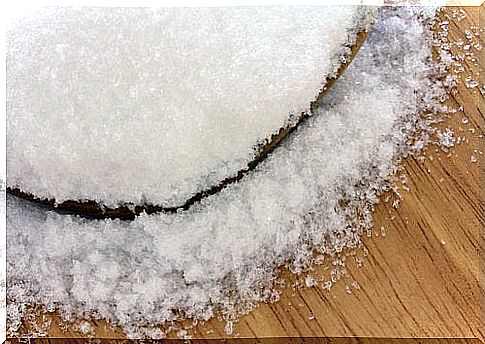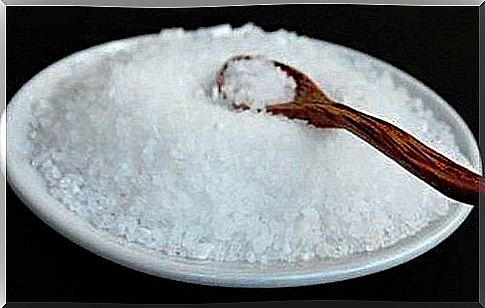How To Treat Magnesium Deficiency

Magnesium deficiency affects many people around the world, and a very serious thing is that many of us do not even know that we suffer from this health problem.
A low level of magnesium in the body can cause a variety of symptoms that are often overlooked or confused with other conditions. In fact, even doctors can misidentify the cause of the symptoms experienced by the patient, not realizing that they are caused by a magnesium deficiency.
What is magnesium?

Magnesium is one of the essential minerals for life to exist. As a share in the human body, this mineral is in fourth place, immediately after potassium.
In addition to being a mineral, magnesium is also an electrolyte that facilitates the prevention and treatment of certain health problems (such as cramps). Electrolytes facilitate the proper functioning of the muscles, so that the heart beats and the brain receives signals and stimuli.
In other words, magnesium is an essential mineral for living and being healthy. For this reason, magnesium deficiency can cause symptoms that reduce the quality of life and can cause the onset of many diseases.
Magnesium plays an essential role in over 300 reactions that take place in the human body, being an indispensable element for transmitting nerve impulses, regulating body temperature, detoxifying the liver and forming bones and teeth.
Magnesium also plays a very important role in the cardiovascular system. Among other things, this mineral prevents the formation of blood clots, relaxes blood vessels, thins the blood and reduces the risk of developing cardiovascular disease.
Currently, the market is flooded with various “sports drinks”. Their manufacturers claim that they have a high content of electrolytes, including magnesium, potassium and sodium, three elements whose level decreases when we move and sweat.
Deficiency of magnesium, potassium and sodium can lead to muscle cramps and other health problems. But so-called sports drinks often contain a lot of sugar and do not provide the body with all the nutrients listed on the package.
Symptoms caused by magnesium deficiency

Most people have at least some of the symptoms of magnesium deficiency. Here are the main warning signs of this health problem:
- Constipation
- Hypertension
- Anxiety
- Depression
- Behavioral disorders
- Memory disorders
- Sleeping disorders
- Muscular cramps
- Chronic back pain
- Headache
- migraines
- Muscle aches
- Aggressivity
- Loss of consciousness
- tension
- Anxiety disorders, such as obsessive-compulsive disorder
- Chronic fatigue syndrome
- Fibromyalgia
- Heart disease
- Atrial Fibrillation
- Palpitations
- Diabetes
- Sudden death in patients with congestive heart failure
- Kidney stones
What causes magnesium deficiency?

There are many reasons why the body may have insufficient magnesium levels. A first cause is following a poor diet, a widespread phenomenon nowadays due to unhealthy foods available on the market.
Other causes include daily stress, environmental pollution, exposure to noise and modern technology. When we are stressed, the body uses a lot of magnesium to produce certain hormones, thus depleting our reserves.
Moreover, the level of magnesium decreases when we consume large amounts of sugar because the body needs 54 molecules of magnesium to process a single molecule of sugar.
Also, modern farming techniques and the consumption of certain drugs, such as oral contraceptives, antibiotics, cortisone and prednisone are factors that can cause magnesium deficiency.
How can we get magnesium?
We have various natural ways to increase the level of magnesium in the body. Remember the following tips:
- Increase your daily intake of magnesium-rich foods.
- Consume drops of magnesium ion.
- Apply magnesium oil to your skin (this is one of the most effective ways to prevent magnesium deficiency).
- Take a bath with Epsom salts. These relaxing and healthy baths will increase the level of magnesium and sulfur in your body, being very beneficial for your liver.









